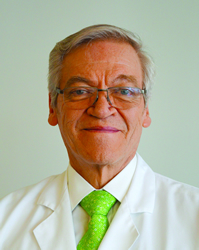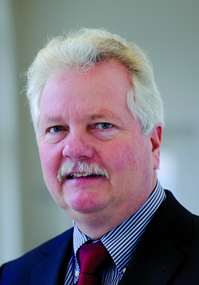According to the Global Burdens of Disease Study, published in 2012, rheumatic and musculoskeletal conditions are the second greatest cause of disability in the world, with conditions such as arthritis and back pain affecting more than 1.7 billion people worldwide.
Considering both death and disability, these combined conditions have the fourth greatest impact on the overall health of the world population — a burden that has increased by 45 percent over the last two decades.

The International League of Associations for Rheumatology (ILAR) will sponsor ILAR Global Burdens of Rheumatic and Musculoskeletal Diseases in Different Regions of the World on Wednesday afternoon that will feature reports from ILAR’s partner organizations on the current impact of rheumatic and musculoskeletal conditions in different regions of the world. The symposium will be moderated by ILAR Executive Committee Chair Carlos Pineda, MD, PhD, Director of Research at the National Rehabilitation Institute in Mexico City.
“ILAR is committed to support programs that lead to progress in the practice and education of rheumatology in countries where there is an exceptional need,” Dr. Pineda said. “We continue to strengthen the ILAR mission by fostering greater recognition of the conditions that make it possible to improve musculoskeletal health in less-privileged nations, in the understanding that these are problems that sooner or later will have a greater impact on overall public health in those nations.”

Rheumatic and musculoskeletal diseases (RMDs) represent one of the most burdensome chronic conditions affecting European societies and are also the number one cause of disability in Europe, according to EULAR President Gerd Burmester, MD, who will present the report from the European League Against Rheumatism. Dr. Burmester is professor of medicine in the Department of Rheumatology and Clinical Immunology at the Charité University Hospital, Free University, and Humboldt University of Berlin, Germany.
“Currently, RMDs affect one out of four persons in the European Union, amounting to around 120 million people — a burden that will undoubtedly increase in line with the overall ageing of Europe’s populations,” Dr. Burmester said. “Beyond the substantial burden that RMDs inflict on individuals, they also place an enormous financial burden on national budgets. They are one of the main causes of absenteeism, work loss, and early retirement, while also explaining a large proportion of unemployment.”
It is estimated that RMDs account for a yearly economic burden of more than €240 billion on public budgets in Europe and account for a large proportion of national health care costs. As the main cause of disability, RMDs also represent a significant burden on social welfare systems, Dr. Burmester said.
“EULAR has identified access to quality health care as a key topic and a leading priority for our ongoing advocacy work in the coming years,” he said. “Breaking down existing barriers to quality health care is vital for different reasons. It is, on the one hand, essential for patients suffering from RMDs and, on the other hand, also an opportunity to alleviate the huge economic, financial, and societal burden these diseases cause.”
Through the input of people with arthritis/rheumatism, health professionals, and scientific societies of rheumatology, the barriers to access were categorized into four main areas: Health systems coverage and management; performance and organization of health care services; relationship of patients with health professionals, health systems, and treatments; and availability and affordability of medicines and treatments.
“Tackling these access barriers will require an active contribution of actors at EU, national, and regional levels, as well as the involvement of stakeholders,” Dr. Burmester said. “Bringing about positive changes in this area is one of the main advocacy aims of EULAR and will be achieved through the active dissemination of policy recommendations, which will be presented in an upcoming position paper.”
The symposium will also include reports from the Asia Pacific League of Associations for Rheumatology, the Pan American League of Associations of Rheumatology, and the African League of Associations in Rheumatology.


